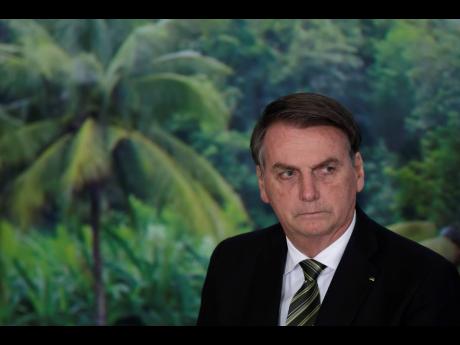Brazil economy posts third year of slow growth
Brazil’s economy expanded by 1.1 per cent in 2019, marking a third straight year of frustrating activity following a massive recession, according to data released Wednesday.
The 1.1 per cent growth in 2019 was less than half the forecast at the start of the year, and its worst performance since bouncing back from the two-year recession in 2015 and 2016, according to data from the government’s statistics institute. It grew 1.3 per cent in the subsequent two years, well less than half the global average.
Brazil’s President Jair Bolsonaro took office at the start of last year with promises to rejuvenate Latin America’s biggest economy. But political turbulence hampered the government’s reform agenda, tight fiscal policy constrained domestic demand, and a crisis in neighbouring Argentina sapped exports.
“When an economy is weak like this, it doesn’t take much to trip it up. When you think back to the start of 2019, people were quite optimistic,” William Jackson, chief emerging markets economist at Capital Economics, said by phone from London. “Brazil’s economy is simply not showing signs of significant recovery and, the longer it continues to disappoint, the more people will stop expecting growth above two per cent.”
Growth last year was led by family consumption, which rose 1.8 per cent compared to 2018, and investment that grew 2.2 per cent, according to the statistics institute.
The last time Brazil’s economy expanded more than two per cent was 2013. Economists started 2020 with an outlook for faster recovery this year, but have already begun cutting forecasts – partly a result of the spreading new coronavirus. On March 3, one day before the release of Brazil’s activity data, Goldman Sachs cited the virus and its impact on global activity as rationale for lowering its Brazil call to 1.5 per cent, from 2.2 per cent previously.
However, leading indicators for the first quarter “were already pointing to soft growth even before the February intensification of the coronavirus outbreak,” Alberto Ramos, Goldman’s chief Latin America economist, wrote in a report.
AP

